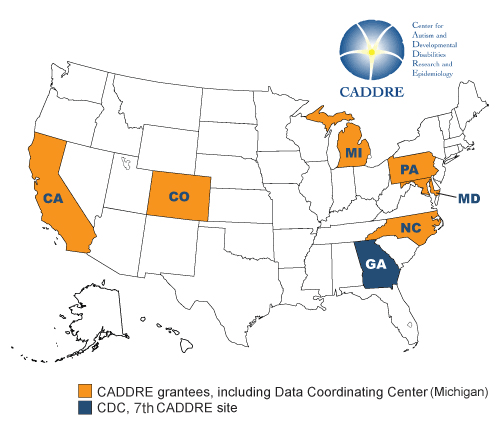Study to Explore Early Development (SEED)
 The Study to Explore Early Development (SEED) is a multi-year study funded by CDC. It is currently the largest study in the United States to help identify factors that may put children at risk for autism spectrum disorders (ASDs) and other developmental disabilities. Understanding the risk factors that make a person more likely to develop an ASD will help us learn more about the causes.
The Study to Explore Early Development (SEED) is a multi-year study funded by CDC. It is currently the largest study in the United States to help identify factors that may put children at risk for autism spectrum disorders (ASDs) and other developmental disabilities. Understanding the risk factors that make a person more likely to develop an ASD will help us learn more about the causes.
 What is SEED?
What is SEED?
Watch this video to learn more.
 Why is SEED Important?
Why is SEED Important?
Watch this video to learn more.
 SEED Fact Sheet
SEED Fact Sheet
SEED is being conducted in diverse communities across the country. There are sites in California, Colorado, Georgia, Maryland, North Carolina, Pennsylvania.
SEED Newsletters
The research goals for SEED include learning about:
- Physical and behavioral characteristics of children with ASDs, children with other developmental disabilities, and children without a developmental delay or disability
ASDs are a complex disorders. We want to learn more about why people with ASD are the way they are—how they behave, grow, think, and interact with the world around them. We also want to know the same things about children with other developmental disabilities and those with typical development.
- Health conditions among children with and without ASDs
We are interested in learning more about the health conditions and disorders that might affect children with and without ASDs. Some smaller studies have shown that certain medical conditions seem to be found more often among children with ASDs and their families. SEED provides an opportunity to compare health conditions and health-related issues such as sleeping and eating patterns in children with ASDs, in children with other developmental disabilities, and in children without a developmental delay or disability.
- Factors associated with a child’s risk for developing ASDs
We hope that SEED will give us a better idea which of the many possible risk factors that we will be evaluating seem to be associated with or related to ASDs. The risk factors may be related to genes, health conditions, experiences of the mother during pregnancy, and the health and development of the child during infancy and the first few years of life.
The study will include children with ASDs, children with other developmental disabilities, and children with typical development, ages 2-5 years.
The six SEED study sites and a data coordinating center are part of the Centers for Autism and Developmental Disabilities Research and Epidemiology (CADDRE) network.

To learn more, visit the SEED Frequently Asked Questions »
Contact Us:
- Centers for Disease Control and Prevention
National Center on Birth Defects and Developmental Disabilities
Division of Birth Defects and Developmental Disabilities
1600 Clifton Road
MS E-87
Atlanta, GA 30333 - 800-CDC-INFO
(800-232-4636)
TTY: (888) 232-6348
New Hours of Operation
8am-8pm ET/Monday-Friday
Closed Holidays - cdcinfo@cdc.gov



